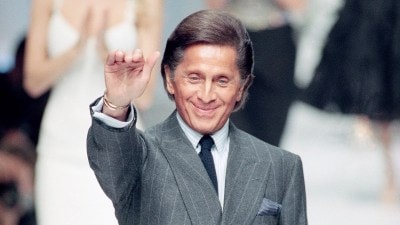The body fuel guide
Diets do not work. That is diet' as in the meaning of the word interpreted by the billion-dollar diet industry, those days and weeks of de...

Diets do not work. That is diet8217; as in the meaning of the word interpreted by the billion-dollar diet industry, those days and weeks of deprivation, of pining for forbidden foods. It is staggering the agonies that we put ourselves through in the name of love handle reduction.
Oh yes, we have all been sucked in somewhere along the line with the shallow promise of the miracle solution. At college, the in-thing was the Beverley Hills Diet. We could all have butts like Goldie Hawn if we ate pineapples on Monday, boiled eggs on Tuesday, potatoes on Wednesday, caviar on Thursday, horse manure on Friday. We did not care as long as it worked.
Then came the meal replacements; powders and potions that we washed down with pained expressions. One particularly popular one was discovered to be made largely from powdered seagull droppings that were supposed to be a fantastic appetite suppressant!
Now, that is where the danger lay. In suppressing our natural appetites, we were ignoring a message from the most sophisticated computer system in the world. When that system requires nourishment, the message should not be ignored or over-ridden. But we did not care. When we got on the scales, the kilos were dropping. That is, until we started to eat normally again. Not only did we put back all the weight that we had lost, but more came on as well.
We were simply depriving our bodies of the nourishment that they needed, especially at that dangerous and vulnerable teenage time when they required all the vitamin and enzymes that they could get. But our bodies are cleverer than we are. If we dramatically cut down on the food we eat, our metabolism the mechanism that dictates how our cells are fed from digested food slows down to compensate for the lack of fuel coming in.
We have less energy and mental ability is reduced, hence people who are starving are lethargic and slow to respond to mental stimuli. At the end of a restricted diet, it is typical to splurge on the forbidden foods that have filled our dreams. The metabolism reacts by behaving like a naughty child. It grabs hold of whatever comes in and hangs onto it just in case we decide to deprive it again. So the kilos pile back on with a few friends for company. Hello love handles.
Diet in the real sense of the word does work. By definition and in contradiction of what the diet8217; industry says, it means way of taking in food on a daily basis. We grow and put on vital body weight until we are between 16 and 20 years of age, depending on when we hit puberty. From then on, it is a question of maintaining a weight that is healthy for our height and body type how many overweight people are there claiming to have heavy bones?
A salutary moment came when I sat down with a couple of girlfriends from college. Amidst the hilarity over our stupidity in believing in boiled eggs and horse manure, we worked out that between the three of us, from college to 25, we had put on a total of 145 kilos and lost about 141 kilos each of us was a couple of kilos up or down on what we were when we were 18.
Put in another way, even if we added only half-a-kilo each year from the age of 18 to the age of 60, we will have gained a rather heart testing 19 kilos and half-a-kilo a year is hardly monumental. Answers. Are there any?Eating normally is the obvious answer. But what is normal eating? It is looking at the kind of life we lead and working out how much fuel we need to maintain our bodies in the peak of health. There is endless controversy surrounding the use of calorie-counting diets.
Broadly, a fit male between the ages of 25 and 55 needs between 2,000 and 2,500 calories a day, depending on his physical activities. For a woman, it is between 1,800 and 2,300 calories a day.
Many nutritionists claim that by restricting calories, we kick-start the vicious and familiar cycle of deprivation and over-indulgence. Instead of using food as fuel, we start to use it as an emotional crutch particu-larly women.
So, the cruel truth is that we so often pile on those love handles, when what we are really after is the real thing. Food can never replace emotion. We have to learn the hard lesson of understanding that message.
- 01
- 02
- 03
- 04
- 05































